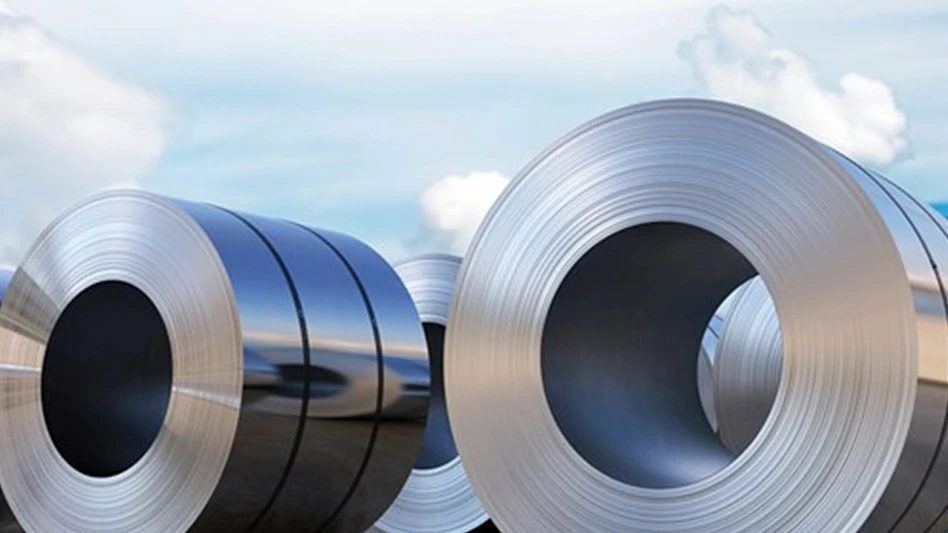
CREDIT: ARCELORMITTAL
ArcelorMittal announced that it is proceeding with plans to build an advanced, non-grain-oriented electrical steel (NOES) manufacturing facility in Alabama.
The new facility, wholly owned by ArcelorMittal, will be capable of producing up to 150,000 metric tons of NOES annually, depending on the product mix, in support of automotive and mobility, renewable electricity production, and other industrial and commercial uses of NOES, including electric motors, generators, and specialized applications.
The project promotes U.S. manufacturing competitiveness and addresses a crucial market need by reducing U.S. dependency on electrical steel imports through the expansion of domestic NOES production. Construction is set to begin in the second half of 2025, with production anticipated to commence in 2027. The project is expected to create up to 1,300 jobs during the construction phase and more than 200 permanent positions to support the plant’s ongoing operations.
“We recognize the importance of creating a resilient, sustainable domestic supply chain for this critical material,” says John Brett, CEO, ArcelorMittal North America. “We also greatly appreciate the support the project has received and would like to recognize Alabama Governor Kay Ivey and Secretary of Commerce Ellen McNair, as well as the Mobile County Commission and the Mobile Chamber for their backing, which not only advances our mission but also fuels economic growth in the greater Mobile region.”
Secretary of Commerce Ellen McNair comments, “ArcelorMittal’s growth project at Calvert will support the growth of critical industries like electric vehicles and energy-efficient technologies while creating high-quality jobs for Alabamians — it’s a shining example of how Alabama’s business-friendly climate and skilled workforce continue to attract cutting-edge manufacturing projects.”
NOES has been identified as a critical material for producing electric motors used in battery electric vehicles, plug-in hybrid electric vehicles, hybrid vehicles, and a broad range of energy technologies and applications. The production of NOES requires specialized technical expertise, advanced manufacturing capabilities, and rigorous quality control to meet stringent specifications for magnetic and mechanical performance.
“We’re committed to meeting the growing demand for high-quality electrical steels while helping customers overcome their supply chain challenges,” says Peter Leblanc, CMO, ArcelorMittal North America. “The new plant will greatly enhance our capacity to support manufacturers by providing a steady domestic supply of high-quality NOES, enabling them to produce superior products and avoid material shortages, extended lead times, and cost volatility associated with overseas supply chains.”
Plans for the new ArcelorMittal Calvert plant include an annealing pickling line, cold-rolling mill, annealing coating line, packaging and slitter line, and additional ancillary equipment needed for specialized electrical steel manufacturing operations. The facility will be located near ArcelorMittal and Nippon Steel's joint venture, AM/NS Calvert, a state-of-the-art steel plant that includes a river terminal, hot strip mill, cold rolling mill, hot dip galvanizing lines, rail yard, supporting infrastructure, and a new electric arc furnace (EAF) that is nearing completion.
Latest from EV Design & Manufacturing
- Ford shifts approach to electric vehicle production
- Nikon introduces digital camera for microscopes, updates inspection systems
- Powering homes with EV batteries could cut emissions, save thousands of dollars
- Meviy introduces stainless steel passivation option for CNC, sheet metal parts
- December Lunch + Learn webinar with Fagor Automation
- December Lunch + Learn webinar with LANG Technik + Metalcraft Automation Group
- EVIO makes public debut with hybrid-electric aircraft
- Redesigned pilot step drill triples performance





